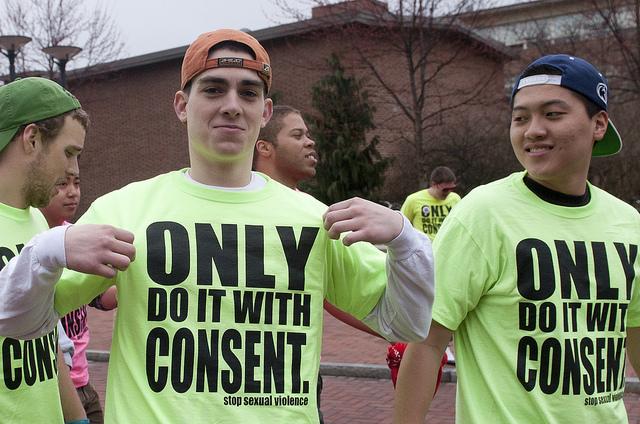“Why didn’t she say something sooner?”
It’s a loaded statement. To be quite frank, I don’t and I can’t know the answer. It’s not because I don’t try to understand or empathize, rather it’s because as a man, I simply am not subjected to the same atrocities that women are.
I’m not sure I should be saying anything on this topic at all. I’ve never been a survivor of sexual assault so I can’t necessarily empathize with those who have. But when people — when men — ask “why didn’t she say something sooner?” I can’t sit idly by when women across campus and across the nation are systemically silenced.
Still, I can’t speak with my own experience of sexual assault so the next, and most honest accounts I can write about is directed at the men who have never had these issues at the forefront of their lives.
I, like a lot of my male peers, don’t see it happen. Throughout my time at Madison, I’ve never seen a woman get catcalled. At any place I’ve worked, I’ve never seen harassment. And for all the house parties on campus I’ve attended, I’ve never walked in on a girl being assaulted. But I hear about it so often.
For some men, myself included, we only experience sexual harassment second hand. We hear about it and we can brush it off because we have the privilege of not having to deal with it. But every single woman I know has a story where she has had to deal with it.
The fact that we don’t see it doesn’t mean that it isn’t happening somewhere else, and the fact we don’t notice doesn’t mean that it isn’t happening right in front of us.
A problem that some men face when confronting the pervasive presence of these issues is the notion that “I would never do something like that, so how could anyone?”
Personally, I didn’t believe that men actually sent unsolicited naked pictures to women until I asked my women friends. I had thought people were joking because “who would actually do that?”
I discovered that only half of my friends had a number low enough that they could count. The notion that my actions and intentions are universal was naïve and harmful, and shedding them was an important part in understanding “it may not be all men, but it could be any man.”
Bringing this back to the question at hand: “Why didn’t she say something sooner?” I will still answer that I cannot know.
For the men who are like me and haven’t been exposed to conversations or realities like this, I ask you to consider the following scenarios:
If a student in your grade school class was bullying you, and you were going to report them to the teacher, would you be so confident if the teacher was the bully’s parent?
In a similar way, a woman may feel as though the means of correcting the bad behavior are stacked to be favorable toward their offender.
If a student in the same class kept calling you by a nickname that bothered you, and you wanted them to stop, would your first reaction be to tell the teacher you want them to be sent to the principal’s office?
In a similar way, some women experiencing harassment or other forms of sexual misconduct don’t want the offender fired, expelled or imprisoned for a myriad of reasons, so if the problem seems minor, a victim may be hesitant to have their first response be getting authority involved.
If your friend group had a member that everyone else adored, but who once beat you up in third grade, would you try to bring it up and get that person kicked out?
In a similar way, a woman who had been hurt by a well-regarded man may take pause before coming forward with such damning testimony.
If you’re shocked by #MeToo, you’re actively contributing to the problem
I put it into situations where men can understand because we cannot experience it otherwise. Women have a number of reasons for not reporting or waiting to report. Just because I didn’t experience it or my male friends don’t understand it, it doesn’t mean it didn’t happen.


